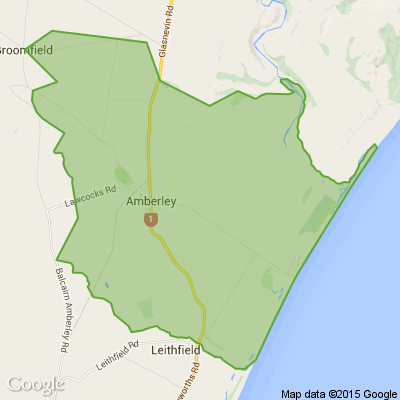Lack of regulations hamper councils
By David Hill, Local Democracy Reporter
A lack of regulation makes it difficult for councils to manage their weed spraying programmes, Environment Canterbury (ECan) science director Dr Tim Davie says.
Responding to concerns raised by Kaiapoi resident Michael Bate, Davie said the Parliamentary Commissioner for the Environment and the Environmental Protection Authority (EPA) lacked the necessary clout to offer guidance to councils.
Bate tabled two Radio New Zealand articles from last year, at a Waimakariri Zone Committee meeting last week about the lack of mechanisms to govern chemical use.
‘‘The EPA, as it stands, is meant to have oversight around chemical use, but there’s very little legislative requirements and there’s no requirement to report it,’’ Davie said.
‘‘If the EPA had a mandate and was properly funded we would have standards to respond to.’’
Parliamentary Commissioner for the Environment Simon Upton presented a report to Parliament last year raising concerns about the regulations around chemical use.
The report identified consequences such as lakes overloaded with zinc, too much antibiotics in wastewater and harm to bees from insecticide-dipped seeds.
It recommended expanding the EPA’s powers to require more data to be collected from chemical importers, manufacturers and sellers.
But more funding was needed.
Davie said it was important for the PCE to highlight those issues.
‘‘But he can’t enforce it and the government hasn’t responded.’’
ECan managed 59 river rating and drainage districts.
Weed management was essential to keep communities safe from flood risks and to protect biodiversity.
Waterways were vulnerable to infestations of exotic pest plant species which choked braided rivers and restricted natural functions.
Davie said spraying was ‘‘the nasty compromise’’ to manage weeds and the spread of gorse around riverbeds.
Glyphosate was widely used in New Zealand and other countries as a general-purpose herbicide and was considered safe by the EPA.
‘‘In an ideal world we would rather not spray,’’ Davie said.
‘‘Glyphosate is a spray which is reasonably short lived. It is a compromise and it is a really difficult thing to manage.’’
The Waimakariri District Council is preparing a report on spraying practices and chemicals used in the district.
■ Waimakariri Zone Committee chairperson Michael Blackwell and deputy chairperson Arapata Reuben both stepped down at last week’s meeting.
Carolyne Latham was elected chairperson, with Erin Harvie elected deputy chairperson.
Former Rangiora High School student Ruby Gill-Clifford was appointed as a youth rep to the zone committee.
Ruby served three years on ECan’s Youth Rōpū and was deputy chairperson last year.
She is studying for a science degree at Canterbury University.
*Public Interest Journalism funded through NZ On Air

Neighbourhood Challenge: Who Can Crack This One? ⛓️💥❔
What has a head but no brain?
Do you think you know the answer? Simply 'Like' this post if you know the answer and the big reveal will be posted in the comments at 2pm on the day!
Want to stop seeing these in your newsfeed?
Head here and hover on the Following button on the top right of the page (and it will show Unfollow) and then click it. If it is giving you the option to Follow, then you've successfully unfollowed the Riddles page.

Ashley Christmas Carol Service - All Welcome
Time for our annual Christmas Carol Service.
7 pm Wednesday 24 December - that's Christmas Eve.
39 Canterbury St, in the Ashley Village - signposted from Scenic Route 72.
Our guest service leader, Paul Askin, and his band of talented musicians will take us through a programme of favourite carols and worship.
Supper to follow.
A koha/donation will be greatly appreciated. Funds raised go towards the maintenance and repairs of our heritage building.
Enquiries: Ph 027 289 1380

Some Choice News!
Many New Zealand gardens aren’t seeing as many monarch butterflies fluttering around their swan plants and flower beds these days — the hungry Asian paper wasp has been taking its toll.
Thanks to people like Alan Baldick, who’s made it his mission to protect the monarch, his neighbours still get to enjoy these beautiful butterflies in their own backyards.
Thinking about planting something to invite more butterflies, bees, and birds into your garden?
Thanks for your mahi, Alan! We hope this brings a smile!








 Loading…
Loading…